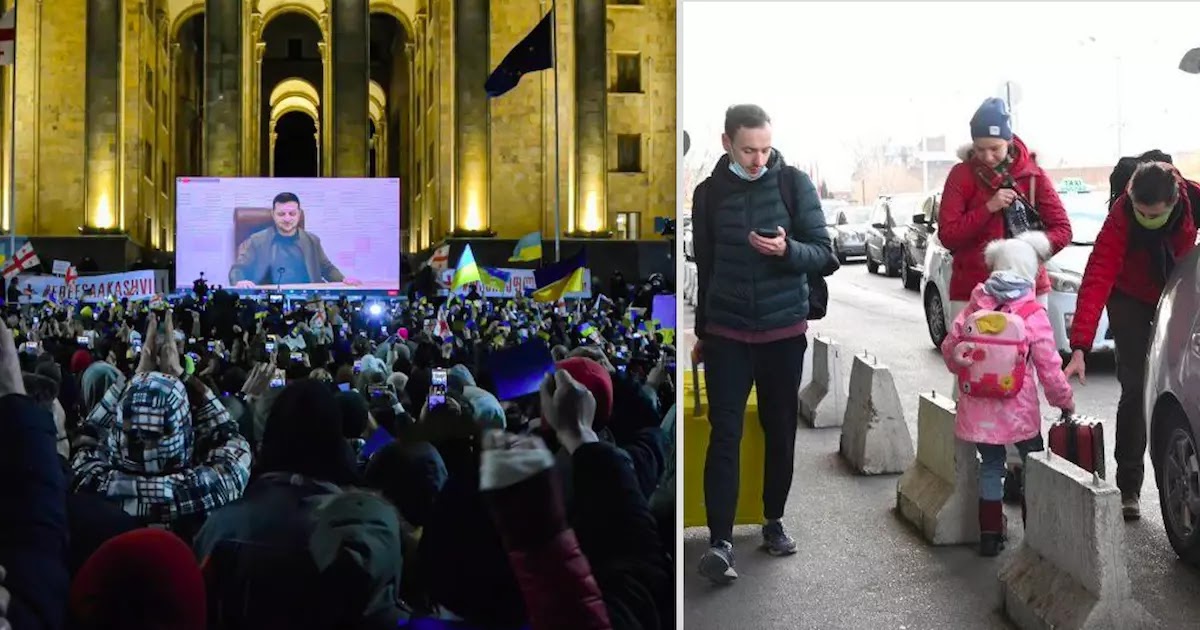
It has been reported by the BBC that as many as 25,000 Russians have fled the country to enter the neighbouring nation of Georgia since the outbreak of war with Ukraine. It is said that massively increasing political repression within Russia, as well as crippling economic sanctions, are the main reason that these individuals have now chosen to flee.
According to one economist, the total number of Russians who have fled Russia since the start of the war 3 weeks ago could be as high as 200,000.
Many of those who are now in Georgia are living on the streets of the capital Tbilisi and are without accommodation. Due to sanctions, many Russian bank cards no longer work outside of the country making access to their own funds nearly impossible.
Speaking to the BBC, a recent Russian arrival in Georgia, Yevgeny Lyamin, who had been arrested at an anti-war protest at the start of the war, said:
"I understood the best way to act against Putin's regime would be my emigration from Russia. It's my responsibility to do anything I can to help the Ukrainians."
Others have also fled Russian ally Belarus to other nations in the region, with fears that Belarussian leader Lukashenko could use the war as an excuse to clamp down even harder on political opponents. A woman by the name of 'Anya' told the BBC:
"A one-way flight to Istanbul cost me and my husband more than our combined monthly income. Fear of closed borders, political repression and forced military service is in our DNA. I remember my grandmother telling me stories about the state of fear they lived in during Stalin's time, and now we are experiencing it."
"We don't support our governments, which is obvious because we ran away. We want to be safe here. But we are being bullied just because of our nationality, I need to hide my country of origin, I don't feel comfortable when people ask me where I am from."
The mass migration of intelligent young individuals from Russia and Belarus may compound these countries' economic problems by taking away the best and brightest who could help build the economy going forward. However, it also means that the Russian and Belarussian regime now have fewer opponents internally stationed within their respective nations.
[Based on reporting by: BBC]













COMMENTS